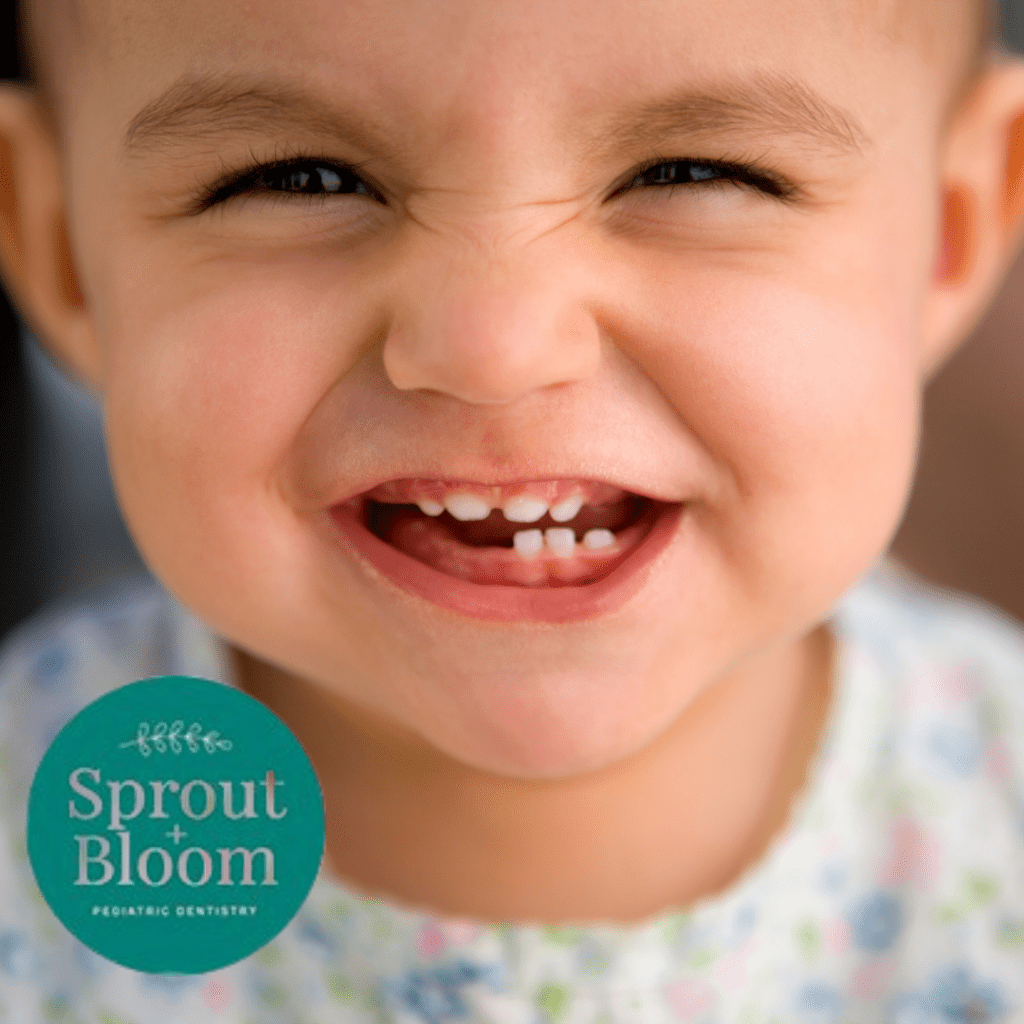FREE New Patient Special for Kids 3 and Under
Kids 3 and under without insurance can get a FREE new patient special that includes a dental exam and teeth cleaning.
Call 720-615-6087 today to take advantage of this special offer!
Are you concerned about your child’s teething process? Understanding teething is essential for ensuring your child’s comfort and healthy tooth development. In this guide, you’ll learn when babies typically start teething, common symptoms to watch for, and how to alleviate teething discomfort. Additionally, we’ll explore the role of pediatric dentistry for children and address common myths. At Sprout & Bloom Pediatric Dentistry, we provide comprehensive pediatric dentistry for children, helping you navigate your child’s oral health with confidence.

Most babies begin teething around 6 months of age, although some may start as early as 3 months or as late as their first birthday. Typically, the lower central incisors (bottom front teeth) are the first to appear, followed by the upper central incisors (upper front teeth).
Teething is an exciting milestone in a baby’s development, but it can also be a challenging time for both parents and little ones. Common signs of teething include increased drooling, chewing on toys or fingers, irritability, and fussiness. You might notice your baby pulling on their ears or rubbing their cheeks as the gums become swollen and tender. Disrupted sleep patterns and a slight increase in temperature (though not a high fever) are also typical indicators. In some cases, babies may experience a decrease in appetite due to gum discomfort.
IMPORTANT: If your child is showing signs of extreme discomfort or high fever, be sure to contact your child’s pediatrician to ensure it is not something more severe. Teething should only cause minimal discomfort.
As with any milestone, every child is different when it comes to getting their first tooth. However, if your child is 18 months and has not begun teething, it is time to consult a pediatric dentist for further evaluation.
The teething process varies from baby to baby. Each tooth usually takes about a week to emerge—roughly 3 to 4 days of discomfort before the tooth breaks through the gum and a few days after. The entire teething phase typically lasts until your child is about 3 years old, with breaks between tooth eruptions.
Helping your baby find relief during teething is crucial for their comfort and your peace of mind. Here are some effective remedies:

As soon as your baby’s first tooth emerges, it’s time to start a solid dental hygiene and care routine. Here’s how:
While teething can be expected to cause discomfort, certain symptoms warrant a call to your child’s doctor. These include a fever over 100.4°F, persistent diarrhea or vomiting, refusal to eat or drink for an extended period, or pus and extreme swelling in the gums. Your care team can assess whether the symptoms are teething-related or point to another issue.
Teething and tooth development are exciting milestones, and you don’t have to navigate them alone. At Sprout & Bloom Pediatric Dentistry in Littleton, Dr. Allison Davis, a board-certified pediatric dentist, is here to support your child’s oral health journey from baby teeth to a confident adolescent smile. Call us today at 720-706-9995 or visit our website to schedule an appointment and give your child the gift of a healthy, happy smile!